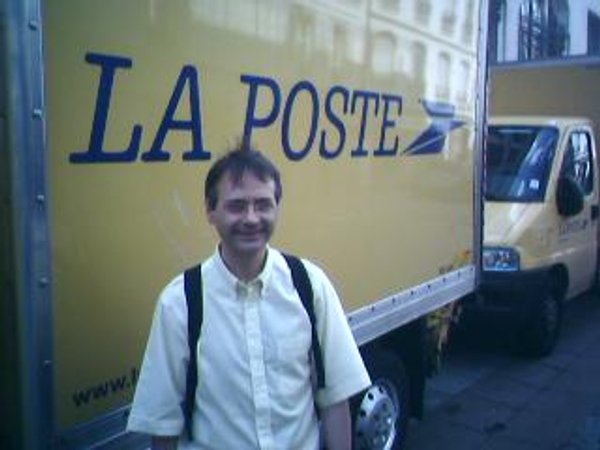In 1974 I was a member of the French Communist Party (FCP). I read Karl Marx, Georges Marchais and Jean-Paul Sartre, and dreamed about “eurocommunism”. My thirst for what was just and ideal was not being satisfied. When I read The Way by Josemaria Escriva, I found that it was the book for workers!
How did it come into your hands?
In 1986 I went on a retreat in a Marthe Robin Foyer de Charité. One of the participants – he was not a member of Opus Dei – got the book for me. I read it, and meditated on it. I was deeply attracted by these spiritual reflections, which I found very down to earth. I am not an intellectual; my studies ended in 3rd year of high school. But the book pleased me so much that I gave it to a girlfriend. But I very soon regretted that; I needed it for my own prayer. I went to several bookstores to buy it, but it was not to be found. One day, going to confession at Notre Dame du Taur in Toulouse, a priest spoke to me about The Way. I asked him where I could find it and he referred me to a centre of Opus Dei.
Did you go there?
Yes, but the book was sold out; it had to be ordered. Two weeks later, when I was buying the book, the director of the centre said to me, “So you enjoyed this book. Then you’ll enjoy a recollection.” He was right. I did appreciate this kind of spiritual formation. At Easter in 1987 I went to a retreat in the Marian sanctuary at Torreciudad in Spain. There, the same priest who had spoken to me about The Way asked me: “Have you already thought about giving your life entirely to God?” I had been thinking about it for a long time. After seeking the advice of the bishop of the diocese, I asked to become a member of Opus Dei.
Did you go directly from the FCP to Opus Dei?
In 1975, while I was in Paris, at a hostel for young workers, a boy named Vinh arrived. His father was an officer in the army of South Vietnam. He talked to me about the reality of communism there. I began to change. Then I read some of Solzhenitsyn’s books, including “The Oak and the Calf”. I think that was the beginning of my conversion.
How did your family react?
My father was not a believer. When I was converted, at 27 years of age, he had a hard time accepting it. In 1992 my mother died. At her funeral mass he came into the church. I hadn’t been expecting that. The priest who had come to concelebrate spoke to my father on this occasion. This was undoubtedly the first time he had ever talked to a priest. In 1998, when my father fell seriously ill, I encouraged him to prepare for his meeting with God. He wanted to see the same priest, a man he respected. He received all the sacraments and died several days later.
But your parents were originally from Spain, a Catholic country?
I come from a Republican family. My parents arrived in France in 1955, where an uncle, a political refugee, was already living. My grandfather had been a Republican militiaman. Once during the civil war, pointing to a priest, he said to his comrades, “This man, kill him.” The others had every intention of doing that anyway. Witnesses who saw this happen denounced my grandfather at the end of the war, at the time of the settling of accounts. He was arrested, tortured and sentenced to life imprisonment, and then his punishment was commuted to nine years in prison. My grandmother died a grief-stricken woman. The children – educated “in the street” without father or mother – nurtured strong feelings of rancor against the Church, guilty, in their eyes, of the death of their mother and of their unhappy childhood. When they grew up, they went into exile in France.
With such a family history, how do you react when some people claim that Opus Dei supported Franco?
When I was getting acquainted with the Work I wasn’t aware that some people were characterizing it as pro-Franco. I come from a family that didn’t like Franco. And I can tell you that I haven’t found any trace of a pro-Franco ideology in Opus Dei.
What remains of your commitment to the FCP?
My vision of what is just, of what is ideal, hasn’t changed. I’ve never been on the side of the boss, unless he was good. But I haven’t known many who were!
What has Saint Josemaria given you?
He has enabled me to discover the world of Christianity lived in ordinary life. But above all, he has shown me that union with God is not achieved only in prayer or at church, but also when I’m writing a letter or riding in the subway – at every opportunity or, more precisely, at the opportunity that each day offers.
What statement of Saint Josemaria has impressed you the most?
I’ll say it in Spanish: “Cristo vive.” I heard him say that in a film. Christ is not like a character in a novel. Christ lives. This changes everything.
